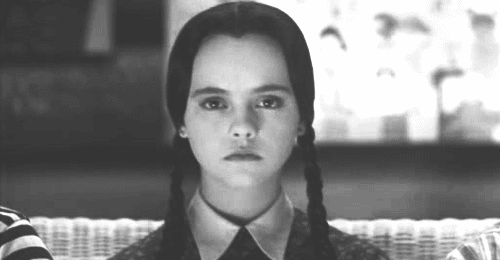Fearing For My Son’s Life Taught Me How To TRULY Live
When you stop yourself from feeling, you stop yourself from living.
 WeHeartIt
WeHeartIt I read the news today, oh boy.
I woke up to the unfortunate news that a young 18 year old girl died during the first week of classes in her first year of University. I wept.
I wept for this poor young girl with her whole life ahead of her, I wept for her family now left behind without her.
And I wept — fearful that one day this could be us, OUR loss and grief. You see, this young woman is one of many young children that have lived with the risk of anaphylaxis. My son is one of them too.
Put this way, 'the risk of anaphylaxis', is simply something that we put on a MedicAlert ID or on a form that we fill out for school, summer camp and activities our children take part in — it's simply a diagnosis that we have to "do something about" as parents.
From the outside, children with a risk of anaphylaxis appear to be like any other kid, and us, like any other parent. And that is partially true — on the inside they are like every other child with hopes, dreams, a full life to live.
We are parents wanting our children to experience the world and all the opportunities that are available to them ... and also — on the inside — they (and us parents) have to live with this very REAL threat and risk that one day, they could eat something, be stung by something, exposed to something, beyond their control … and they could DIE.

As you're reading this, you are likely experiencing some sort of "wow" — a lump in your throat, a knot in your stomach.
This article is not just about anaphylaxis. It's about the risk of NOT feeling. The risk of emotional illiteracy in parenting and not recognizing the emotional impact of something like this on the human beings involved — both parents and children.
I have spent many days over the past 17 years not feeling — not letting myself experience the weight of this very real risk in our family. Not crying about it. This has served me at times because it does allow me to live a life not run by the fear. It's allowed me to kick into crisis mode when anaphylaxis does strike and it's allowed me to encourage my son to not live in fear and experience the fullest life available to him in his 17 years.
But not feeling has also denied what my body was — at times — experiencing anyway.
The fact of the matter is — that when I slow down and accept that this is the life that my son, my family, I are living, there are a lot of emotions swirling around in me and these show up with many variations of physical feelings — different at different times.
I get heart palpitations, clenched throat, nausea and feeling like I could vomit. My body is heart-broken that he and we have to experience this, my body is scared and wants to kick into fight or flight, my body is angry that THIS is our reality. And none of these feelings are wrong or bad — they simply ARE.

These feelings are here whether I like it or not and they are my very real experience of having a son that could be in the news one day in his first year at University, his last year at University, or any other day of his life.
Others around the world would wake up to read about him and weep.
I feel the desire to write this somewhat provocative, vulnerable and potentially uncomfortable article for you to read today because the deeper truth of ‘not feeling’ is denial. It is destructive, not healthy and it has long-term ramifications for me and my son. For you and your children.
This is where we and our children are all the same.
Feeling is the real path to live a life not run by fear, to respond in crisis mode and to live and support your family in their fullest life.
Allowing yourself to feel is being a healthy role model for your children. Once you have capacity to be with your own emotions, to be 'emotionally literate' around whatever you experience in your very real life, you will be able to support your children and their capacity to be with their emotions in their very real life.
I started this article with the heaviness of having a child with anaphylaxis — but I'm not just writing to these families. I know that every family has their own version of real life circumstances that they will be able to relate to at the heart of this article.
As long as you are human with a life, this is written for you.
I had to learn how to feel as a parent and not just "do things" for my children. I had to learn how to be with my emotions — actually, I had to learn how to not block the emotions that were already there. I had to learn to become emotionally literate. This is not therapy - this is simply being human.
As a parent, it is tough to know that your child experiences tough emotions. We would all love to provide a life free of pain and struggle — but it's simply not possible.
From my experience, it's even tougher to know that he was suffering and experiencing those tough emotions (scared, angry, heart-broken, etc.) ALONE until I became courageous enough to feel myself.
